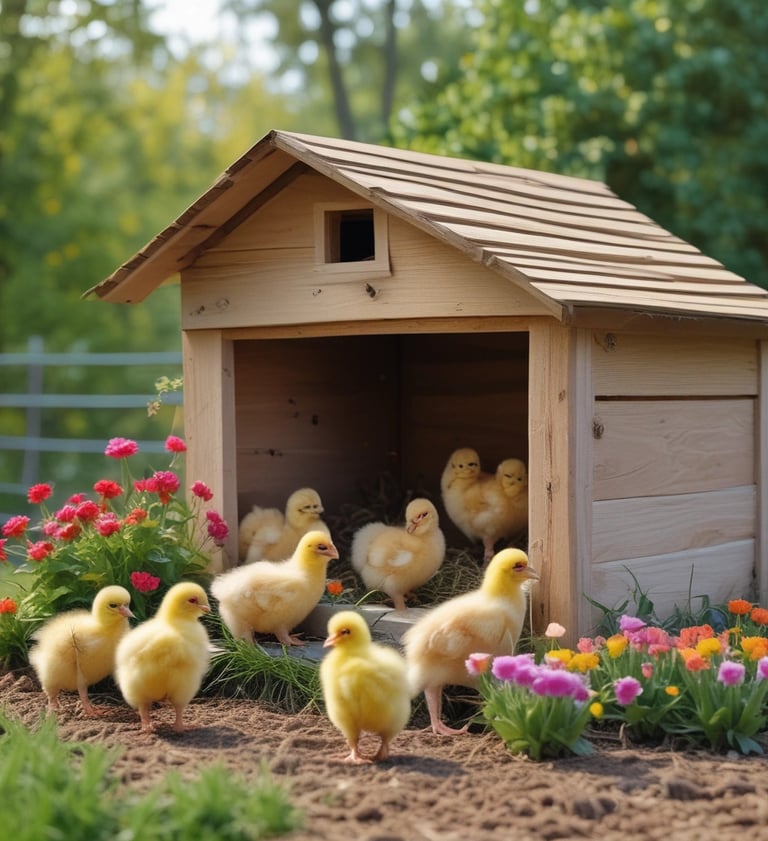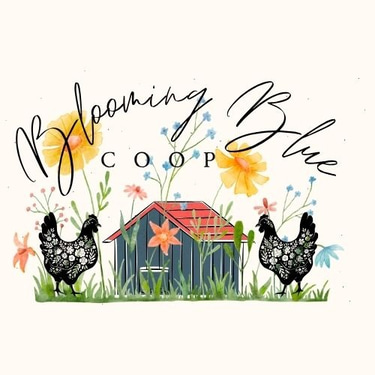Prepping for Chicks: What I Got Ready Before the Peeping Begins
The countdown is on—fluffy little chicks are on the way! As a first-time chicken keeper, I’ve spent the last couple of weeks buried in research, supply lists, and (if I’m honest) a little bit of panic. But now that things are coming together, I wanted to share how I’m prepping for their arrival.
5/8/20242 min read
🐣 Brooder Setup
The brooder is essentially their nursery—the place they’ll live for the first 4–6 weeks. I’m using our old bunny hutch for now, lined with thick cut pine shavings (avoid cedar—it’s toxic). It’s in a draft-free spot inside the garage where I can keep a close eye. Here is a complete list of everything I used for the brooder, click links below to find it on amazon:
These pine shavings are a safe choice!


Feeding Baby Chicks the Right Way
Giving your chicks the right start makes all the difference. In this post, we break down what to feed chicks from hatch to 8 weeks—starter feeds, treats, supplements, and tips to keep them healthy and growing strong. Whether you're brooding your first flock or just need a refresher, this guide covers everything you need to know to raise thriving chicks from day one.


🐥 Guide to Feeding Baby Chicks (with Oats & Oregano Benefits)
Feeding baby chicks properly from day one sets the foundation for a strong, productive flock. Here's a complete beginner-friendly guide to what, when, and how to feed your chicks—plus natural boosts like oats and oregano to keep them healthy and thriving.
🐣 0–8 Weeks: What to Feed Baby Chicks
1. Starter Feed (Medicated or Non-Medicated)
Age: Day 1 to 6–8 weeks
Protein: 18–20%
Form: Crumbles (easier for tiny beaks)
Medicated feed contains amprolium to help prevent coccidiosis, a common intestinal disease. Use if you’re not vaccinating against it.
💡 Tip: Always provide clean, fresh water, and change it daily. Chicks dehydrate quickly!
🌾 The Role of Oats in a Chick's Diet
Why add oats?
While not a complete feed on their own, rolled or ground oats can be a healthy supplement in small amounts:
Aids digestion
Provides slow-release energy
Adds beneficial fiber
Helps firm up droppings in pasty-butt-prone chicks
How to use oats:
Add up to 10% finely ground oats to their starter feed
Avoid giving oats alone—chicks still need the nutrients in balanced starter feed
✅ Oats can be especially helpful if your chicks have loose stools or you want to introduce gentle, natural variety.
🌿 The Power of Oregano for Chicks
Why oregano?
Oregano is a natural immune booster and mild antimicrobial herb. It supports gut health and helps chicks fight off common illnesses.
Benefits:
May reduce respiratory issues
Supports gut bacteria balance
Acts as a mild antibiotic without harming beneficial microbes
How to give oregano:
Add dried oregano (a pinch per feeder or sprinkled in bedding)
Infuse oregano tea into their water (cooled and diluted)
Offer fresh oregano leaves as a treat after the first week
🌱 Oregano can be a great natural addition to your chick care routine—especially if you prefer to limit synthetic medications.
🐤 Bonus Tips for Feeding Success
Use shallow dishes or chick feeders to avoid spills and waste.
Add grit (tiny stones or commercial chick grit) if you're giving anything other than starter feed (like oats or herbs).
Monitor their crops (the pouch in the chest) to ensure they’re eating and digesting properly.
Keep an eye on droppings—changes can signal diet or health issues.
